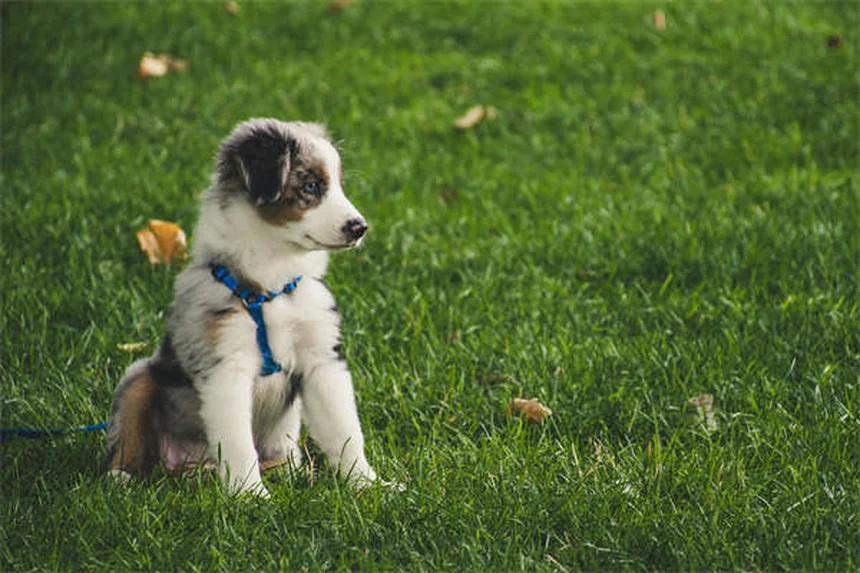Is your cat pregnant? Here's what you need to know: Taking care of a pregnant cat isn't rocket science, but it does require some special attention. I've helped dozens of cat owners through this exciting journey, and I'm here to share everything you need to know about pregnant cat care.The most important thing? Your furry friend needs proper nutrition, a safe nesting area, and regular vet checkups to ensure healthy kittens. In this guide, we'll walk through the key stages of cat pregnancy, from those first subtle signs to preparing for delivery day. Trust me, with the right preparation, you'll be ready to welcome those adorable kittens into the world!
E.g. :Vitamin C Deficiency in Guinea Pigs: Signs, Treatment & Prevention
- 1、Is Your Cat Expecting? Here's What You Need to Know
- 2、Spotting the Signs: Is Your Cat Pregnant?
- 3、The Three Stages of Cat Pregnancy
- 4、How Can You Tell How Far Along She Is?
- 5、Caring for Your Pregnant Queen
- 6、When Labor Begins: What to Expect
- 7、After the Kittens Arrive
- 8、Your Burning Questions Answered
- 9、Preparing Your Home for the New Arrivals
- 10、The Emotional Journey of Cat Pregnancy
- 11、Common Myths About Cat Pregnancy
- 12、Financial Considerations of Cat Pregnancy
- 13、Life After the Kittens Arrive
- 14、FAQs
Is Your Cat Expecting? Here's What You Need to Know
Hey there, fellow cat lover! If your furry friend might be pregnant, you're probably feeling excited - and maybe a little nervous. Don't worry, I've got your back. Let's walk through this journey together, from those first subtle signs to welcoming those adorable kittens into the world.
Pregnancy Basics Every Cat Owner Should Know
Did you know your cat's pregnancy lasts about as long as summer vacation? That's right - approximately 63-65 days. Here's a quick comparison to human pregnancy:
| Species | Average Pregnancy Length | Number of Trimesters |
|---|---|---|
| Humans | 9 months | 3 |
| Cats | 2 months | 3 (but much shorter!) |
Spotting the Signs: Is Your Cat Pregnant?
Early Clues You Might Miss
In those first few weeks, your cat might not look different at all. But if you're super observant, you might notice her nipples getting pinker around days 16-20 - we call this "pinking up." She might also become extra cuddly, like she's suddenly decided you're her favorite person in the world.
Here's something funny - some cats develop what we call "morning sickness" just like humans! My friend's cat, Whiskers, suddenly became picky about her food around week three. One day she'd love tuna, the next she'd turn up her nose at it. Sound familiar?
 Photos provided by pixabay
Photos provided by pixabay
Later Signs That Scream "I'm Pregnant!"
By the final weeks, there's no mistaking it. Your cat's belly will swell like she swallowed a baseball, and those nipples will look like little pink gumdrops. She'll start grooming her belly constantly - it's like she's preparing for a beauty pageant!
Ever seen a cat on a mission? That's what nesting looks like. Your queen (that's what we call pregnant cats) will search every closet and cupboard for the perfect spot. Pro tip: If you don't provide a nesting box, she might choose your favorite sweater drawer!
The Three Stages of Cat Pregnancy
First Trimester: The Sneaky Phase (Days 1-21)
During these first three weeks, your cat is basically keeping her pregnancy a secret. The only clues might be slightly bigger nipples and maybe eating a bit more. Fun fact: At this stage, each kitten is about the size of a peanut!
Second Trimester: Changes Become Clear (Days 21-42)
Now things get interesting! Your cat's belly starts growing, and her personality might shift. Some cats become more affectionate, while others want more alone time. Important: This is when you should switch her to kitten food for extra nutrition.
Did you know cats can have pregnancy cravings too? My neighbor's cat, Luna, suddenly became obsessed with cantaloupe during her second trimester! Weird, right?
 Photos provided by pixabay
Photos provided by pixabay
Later Signs That Scream "I'm Pregnant!"
Your cat will look like she's hiding a small soccer ball under her fur. She'll eat like a champion (though smaller meals more often) and spend hours preparing her nest. This is when you'll want to set up that perfect birthing box we talked about earlier.
How Can You Tell How Far Along She Is?
This can be tricky unless you know exactly when she mated. But here's a handy guide:
- 2.5 weeks: A vet might feel tiny kitten bumps
- 3-4 weeks: Ultrasound can detect heartbeats
- 6 weeks: X-rays show tiny kitten skeletons
Ever wonder why cats hide pregnancy so well? It's an evolutionary thing - in the wild, showing weakness makes them targets. That's why your cat might act completely normal until she's practically ready to pop!
Caring for Your Pregnant Queen
Creating the Perfect Nest
Imagine you're preparing a five-star hotel for a very picky guest. That's what your pregnant cat deserves! Find a quiet corner and set up a cozy box with soft blankets. Make sure it's warm (kittens can't regulate their body temperature at first) but not too hot.
Nutrition: Feeding for Two (or More!)
Your cat needs high-quality kitten food during pregnancy and nursing. Why? Because it's packed with extra calories and nutrients her growing babies need. Feed small meals throughout the day - her stomach has less room as those kittens grow!
Here's a comparison of good pregnancy foods:
| Brand | Type | Key Benefit |
|---|---|---|
| Royal Canin Mother & Babycat | Dry and wet | Easy to digest |
| Purina Pro Plan Kitten | Dry | High protein |
When Labor Begins: What to Expect
 Photos provided by pixabay
Photos provided by pixabay
Later Signs That Scream "I'm Pregnant!"
About 24 hours before labor starts, your cat will probably stop eating. She might pace or seem restless. Important: Her temperature will drop below 100°F - this is nature's way of saying "get ready!"
The Big Event
Labor happens in stages:
- Early labor (you might not even notice)
- Active pushing (kittens arrive!)
- Passing the placenta (one per kitten)
Did you know cats can pause labor? If they feel stressed or unsafe, they might stop for up to 36 hours! That's why it's so important to give them a quiet, comfortable space.
After the Kittens Arrive
First Day Essentials
Newborn kittens are like tiny, blind, deaf potatoes. Your job? Make sure they're warm (85-90°F) and nursing well. Mom will do most of the work, but check that each kitten finds a nipple.
When to Call the Vet
Most cat births go smoothly, but watch for:
- More than 20 minutes of strong contractions without a kitten
- Visible kitten stuck in birth canal for over 10 minutes
- Bleeding or strange discharge
Your Burning Questions Answered
How Young Can Cats Get Pregnant?
Shockingly young - as early as 4 months! That's why early spaying is so important. Imagine a kitten having kittens - yikes!
Can Cats Get Pregnant While Nursing?
Yes! Cats are fertility machines. They can go into heat while still feeding kittens. Nature works fast in the feline world!
Remember, every cat pregnancy is unique. Your vet is your best resource for personalized advice. Now go give your expecting queen some extra pets (if she wants them) - she's about to do something amazing!
Preparing Your Home for the New Arrivals
Kitten-Proofing 101
You think baby-proofing is intense? Wait until you've got a litter of curious kittens exploring your home! Those tiny furballs will find danger in places you never imagined. Start by getting down on your hands and knees - yes, literally - to see your home from a kitten's perspective.
Electrical cords become chew toys, small objects turn into choking hazards, and that potted plant? Suddenly it's a salad bar. Here's a quick checklist: cover electrical outlets, secure loose wires, remove toxic plants (lilies are especially dangerous), and put away small items like hair ties or rubber bands. Trust me, you don't want to learn this lesson the hard way like I did when my kitten Misty decided my earring was a snack!
Setting Up the Nursery
Creating the perfect kitten nursery isn't just about comfort - it's about safety too. You'll want a low-sided box (about 12 inches high) so mom can easily come and go while keeping the kittens contained. Line it with soft, washable blankets - fleece works great because it's warm and doesn't have loose threads that tiny claws can get caught on.
Location matters more than you might think. Choose a quiet corner away from foot traffic but where you can easily check on them. Pro tip: Avoid placing it near windows where drafts or direct sunlight could make the temperature fluctuate. And here's something most people don't consider - make sure it's not near your laundry area. The noise from washers and dryers can stress out new mom cats.
The Emotional Journey of Cat Pregnancy
Understanding Your Cat's Changing Moods
One minute she's purring in your lap, the next she's hissing at her own shadow - sound familiar? Pregnancy hormones affect cats just like they do humans. Your normally independent cat might suddenly become clingy, or your cuddle-bug might want more alone time.
Here's an interesting fact: cats often mirror their owner's emotions. If you're anxious about the pregnancy, your cat might pick up on that and become stressed too. I learned this when my cat Bella was pregnant - the more I worried, the more she paced. When I finally relaxed (with help from some deep breathing and chamomile tea), she settled down too. Funny how that works, right?
Bonding With Your Pregnant Cat
This is such a special time to strengthen your connection with your feline friend. Gentle brushing sessions can be wonderful - it mimics how cats groom each other to show affection. Just avoid her belly area unless she really seems to enjoy it.
Ever tried talking to your cat about her pregnancy? You might feel silly at first, but using a calm, reassuring voice can really help. Tell her what a great mom she's going to be, or explain the changes happening to her body. Bonus: This also helps you mentally prepare for the big day. My husband still laughs about how I used to give my cat daily "pregnancy updates," but I swear it made a difference!
Common Myths About Cat Pregnancy
"Pregnant Cats Should Drink Milk"
This old wives' tale just won't die! While that image of a cat lapping up milk is cute, most adult cats are actually lactose intolerant. Giving milk to a pregnant cat can cause digestive upset when she least needs it.
Instead, focus on providing plenty of fresh water. Did you know a pregnant cat's water needs increase by about 50%? I like to place multiple water bowls around the house - some cats prefer drinking away from their food area. And here's a neat trick: try a pet water fountain. The moving water often encourages cats to drink more, which is especially important during pregnancy and nursing.
"You Should Help Deliver the Kittens"
Unless something's going wrong, your main job during delivery is to stay out of the way! Cats have been giving birth without human help for thousands of years. In fact, too much interference can actually stress mom out and complicate things.
That said, you should definitely be present and observant. Keep a discreet distance, have your vet's emergency number handy, and know the signs of trouble. But resist the urge to play midwife - your cat's instincts are way better than any YouTube tutorial you might have watched! I made this mistake with my first cat's litter and learned that sometimes, the best help is no help at all.
Financial Considerations of Cat Pregnancy
Budgeting for Vet Care
Let's talk dollars and cents - because surprise vet bills are no joke! A typical healthy cat pregnancy might only need one or two checkups, but complications can quickly run up costs. Here's a breakdown of potential expenses:
| Service | Average Cost | Importance Level |
|---|---|---|
| Pregnancy confirmation | $50-$100 | Medium |
| Ultrasound | $100-$300 | High if complications suspected |
| Emergency C-section | $800-$2000 | Critical if needed |
Setting aside at least $500 for potential medical needs gives you peace of mind. And here's something most people don't think about - start saving for kitten vaccinations and spay/neuter costs too! Those little balls of fluff will need their own vet care before you know it.
The Cost of Raising Kittens
Those tiny meows come with not-so-tiny expenses! From quality kitten food to litter (so much litter!), the costs add up fast. And let's not even talk about the "I fell in love and must keep one" tax that so many of us end up paying.
Have you considered how you'll handle finding homes for the kittens? Responsible rehoming often means vet checks, first vaccinations, and sometimes even microchipping before they go to new families. I learned this the hard way when my cat had six kittens - what started as a cute surprise turned into a second job as adoption coordinator! Word to the wise: Start planning early and network with local rescues if you need help.
Life After the Kittens Arrive
The First 48 Hours
Those first two days are magical and exhausting - for both you and mom cat! While the kittens will mostly eat and sleep, your job is to play detective. Watch for any kitten that isn't nursing regularly or seems weaker than the others.
Here's a neat trick I learned from a breeder: weigh the kittens daily using a kitchen scale. They should gain about 10-15 grams per day. Keeping a simple log helps you spot problems early. Fun fact: Newborn kittens double their birth weight in the first week! It's incredible how fast they grow.
Socializing the Kittens
Between weeks 2 and 7, kittens go through their critical socialization period. This is when positive experiences shape their future personalities. Gentle handling, exposure to different sounds and textures, and supervised interactions with trusted people and pets can make a world of difference.
Want to raise confident, well-adjusted cats? Start a "kitten adventure box" with different surfaces (towel, foil, bubble wrap), toys that make various sounds, and safe household items to explore. Rotate new items every few days. Pro tip: Record your voice reading or talking and play it softly near the nest - this helps kittens get used to human voices before they can even see properly!
Remember, every kitten develops at their own pace. Some will be bold explorers at 3 weeks, while others might be shy until 6 weeks. That's perfectly normal - they're just like human kids with different personalities. The most important thing is to let them progress at their own speed while providing plenty of love and security.
E.g. :Cat Pregnancy: Signs, Stages and Care | PetMD
FAQs
Q: How can I tell if my cat is pregnant?
A: Spotting cat pregnancy can be tricky at first. In the early stages (first 3 weeks), you might notice her nipples getting pinker - we call this "pinking up." Around weeks 4-6, her belly will start swelling and she might become extra affectionate or seek more alone time. By the final weeks, there's no mistaking it - she'll look like she swallowed a small soccer ball! Some cats even experience morning sickness or food cravings. If you're unsure, your vet can confirm with an ultrasound or physical exam.
Q: What should I feed my pregnant cat?
A: Pregnant cat nutrition is crucial for healthy kittens. Switch to high-quality kitten food by week 4, as it's packed with extra calories and nutrients. Brands like Royal Canin Mother & Babycat or Purina Pro Plan Kitten are excellent choices. Feed smaller meals more frequently - her stomach has less room as those kittens grow! And don't be surprised if she develops unusual cravings (I once had a client whose pregnant cat went crazy for cantaloupe!).
Q: How long does cat pregnancy last?
A: The cat gestation period is surprisingly short - just about 63-65 days (roughly 9 weeks). That's why it's important to recognize the signs early! We divide this into three trimesters, each about 20 days. The first shows few visible changes, the second brings noticeable belly growth, and the third is when she'll really "pop." Compare this to human pregnancy (9 months), and you'll understand why we say cats are baby-making machines!
Q: What supplies do I need for a pregnant cat?
A: Preparing for cat pregnancy essentials is simple but important. You'll need: 1) A nesting box (a cardboard box lined with soft blankets works great), 2) High-quality kitten food, 3) Extra towels or bedding, and 4) A thermometer to monitor her temperature before labor. The nesting box should be in a quiet, warm area - if you don't provide one, she might choose your closet or dresser drawer instead!
Q: When should I call the vet during my cat's pregnancy?
A: Veterinary care for pregnant cats is crucial at certain points. Schedule a checkup as soon as you suspect pregnancy. Call immediately if you notice: vaginal bleeding, prolonged contractions without delivery, or if she stops eating for more than 24 hours. After delivery, bring mom and kittens in for a wellness check. Remember - most cat births go smoothly, but it's always better to be safe than sorry when it comes to your furry family!



Discuss